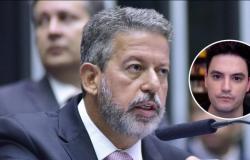
BELÉM – The critical reaction of the Luiz Inácio Lula da Silva government The exclusion of opponents from the electoral process in Venezuela was determined by the PT member himself, sources from Planalto and Itamaraty told the Estadão. The decision was made due to frustration with the lack of commitment by the Chavista dictatorship to holding free elections in the country It’s from political wear caused by Lula’s support for Nicolás Maduro since the beginning of his mandate. Yesterday’s statement, responded acidly by the Venezuelan Foreign Ministrymarks a turning point in the repeated gestures of political support and votes of confidence in the regime.
The text was written by Itamaraty, in coordination with Palácio do Planalto, and personally reviewed by Lula this Tuesday, the 26th, at the Brasília Air Base, before being made public that afternoon. The president endorsed the content, written under his instructions the day before, and did not ask for changes, according to ambassadors.
Then, the PT member embarked with his assistants, including minister Mauro Vieira (Foreign Affairs), to Belém (PA), where he received the French president, Emmanuel Macron. Former Chancellor Celso Amorim (head of the Special Advisory) joined the presidential delegation this Wednesday, the 27th, in Rio.
Political wear and tear
Members of the Planalto already admitted the political strain on Lula due to repeated declarations of confidence in Maduro, his political ally. An interlocutor of Lula reminded Coluna do Estadão what the defense of the Venezuelan dictatorship played a role in the president’s loss of popularity, indicated in at least three studies. For this source, there is no longer any political or diplomatic space to relativize Maduro’s “abuses”.
Since returning to Planalto, the PT member received Maduro with the pomp of a head of state in Brasília, during a meeting of South American leaders, which was harshly criticized by governments on the left and right in the region, such as Chile and Uruguay. In December, Itamaraty had to act to mediate a crisis caused by Caracas when trying to annex part of Guyana.
In his last public statement, he suggested that there should be a “presumption of innocence” with Maduro, despite the arrest of opponents and campaign coordinators of María Corina Machado, the main anti-Chavista leader.
Finally, the statement that the opposition should “choose another candidate instead of crying” caused embarrassment in the government and was one of those that had a bad impact on Lula’s image. Corina Machado, in a gesture considered “genius” in the government, chose a namesake as her replacement.
‘Mockery’ with Barbados agreement
Interlocutors from Itamaraty and Lula’s international advisors report that the measure was discussed on the afternoon of Monday, the 25th, during a conversation between Lula, Vieira and Amorim at Palácio do Planalto.
At that moment, Lula decided that “it was no longer possible” to stop taking a position and the note had to be prepared, but he asked his assistants to wait for the deadline for candidacy registrations to end, within the calendar scheduled for the elections called for July 28th. , Hugo Chávez’s birthday.
According to the PT member, if the registration of the main opposition candidate was not resolved, there would be no other way but to abandon the “cautious” stance and denounce the violation of the agreement.
The moment was considered a key date, an “important milestone” because from then on it would be clear who would be qualified to participate or not in the electoral dispute. Waiting would allow Lula to maintain his argument of not “pre-judging” the events in Caracas. Without the main political force opposing the government, the election completely lost international credibility.
Diplomats involved in drafting the text say that the lack of public explanations by Maduro about the clear difficulties and the supposed and alleged “failures” on the internet, which would have prevented the virtual registration of Corina Yoris as an opposition candidate on behalf of the Unitary Platform, were perceived as “debauchery refinements” in the government. There was also no possibility of registering her candidacy in person with the National Electoral Council, controlled by Chavismo.
Amorim ignored by Maduro
The Lula government’s reaction came after a week of assessments and contacts made mainly by the team led by Amorim, with members of the Chavista government, the opposition and Norway, another country involved in the mediation.
At Itamaraty, a few weeks ago the assessment was that since the signing of the Barbados Accords – witnessed by Amorim as sent by Lula -, what had been seen were serial setbacks, with government acts contrary to the commitment signed by Maduro.
According to advisors, the Palácio do Planalto already admitted “concern” about the repression of opponents of the regime and the difficulties in registering Corina Yoris’ candidacy.
But the government had decided to wait and not join the chorus of Maduro’s opponents and countries aligned to the right, who had already denounced the obstacles, at least since last Friday.
Before the note was made public, Amorim tried to make phone calls to talk to members of the Venezuelan government, but was not answered. The international affairs advisor is the main interlocutor designated by Lula for the topic, and will continue in this position.
To explain the tone adopted by the Lula government, after the publication of the content, the Brazilian ambassador in Caracas, Glivânia Maria de Oliveira, entered the scene. The diplomat recently sent by Itamaraty maintained political contacts with names at the top level of Chavismo.
Maduro’s aggressive reaction
For diplomats and advisors to the president, the reaction of the Chavista foreign ministry, which alleged interference in internal affairs and influence of the United States under the Itamaraty, was predictable within the rhetoric commonly used in Caracas and was calculated to have domestic repercussions in Venezuela.
Despite this, Itamaraty assesses that the government understands that it has the right to take a position because it was invited to participate in the Barbados Agreements. An ambassador states that “those who signed together have the right to demand”.
Members of Lula’s special advisory team saw an excessively “aggressive” tone and an “unnecessary provocation” to draw attention from the PT and the left when mentioning the USA. They also talk about the Chavistas’ double game of focusing fire only on Itamaraty and preserving direct channels with the president.
A considerable part of the electorate rejects this defense of authoritarian regimes, especially Venezuela and Russia. This has an impact. And this impact is even greater because many people who voted for Lula voted less to adhere to the political program and more because they saw him as an alternative to an authoritarian project. These people are frustrated with the ideological defense of authoritarian regimes
Mauricio Santoro, political scientist, professor of international relations and collaborator at the Center for Political-Strategic Studies of the Navy
Lula’s unsustainable position
For analysts, Maduro’s refusal to comply with the electoral agreement made Lula’s position untenable. “The government’s bet was to try to bring Maduro closer again to, in some way, help to create a peaceful transition because we don’t care as a country if the situation in Venezuela deteriorates even further”, says professor at the Department of International Relations at Unifesp Carolina Pedroso. For her, the government waited as long as possible for a signal that the Miraflores Palace would be willing to collaborate.
Now, this scenario no longer exists. For Mauricio Santoro, political scientist, professor of international relations and collaborator at the Center for Political-Strategic Studies of the Navy, it was very clear that the July election turned into a ‘consecration ritual’ for Maduro, which could cause even more damage politicians for Lula.
“Common sense says that diplomacy doesn’t give you votes, but the world has changed. It may not even give a vote, but it takes a vote. It’s one of the elements of political identity formation in such a polarized environment,” she says. “A considerable part of the electorate rejects this defense of authoritarian regimes, especially Venezuela and Russia. This has an impact. And this impact is even greater because many people who voted for Lula voted less to adhere to the political program and more because they saw him as an alternative to an authoritarian project. These people are frustrated with the ideological defense of authoritarian regimes.” / COLLABORATED BY JÉSSICA PETROVNA
Tags: Frustration Chavista debauchery political wear tear led Lula authorize Maduro charged
--




